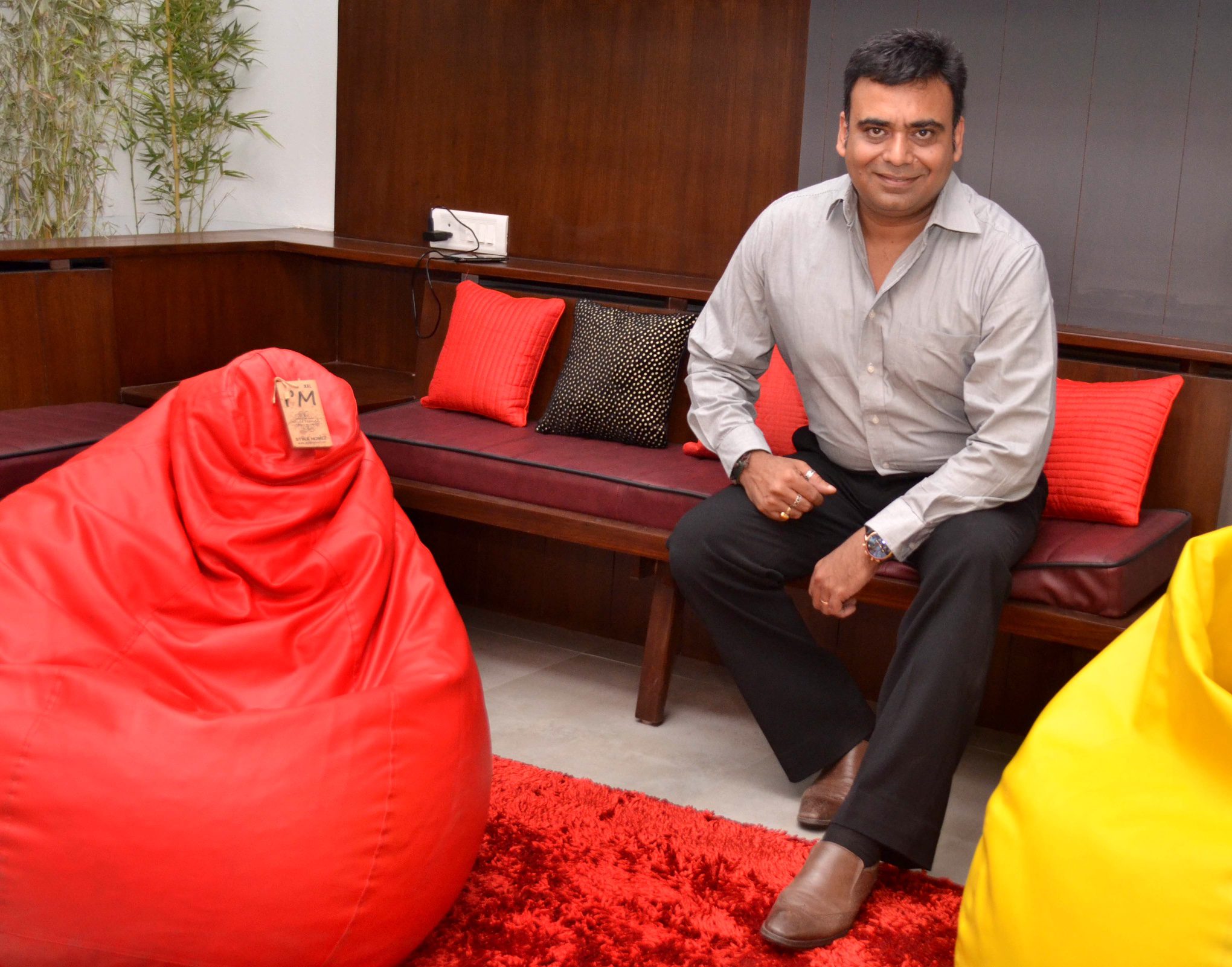(November 25, 2021) We’ve come a long way from when the Internet started in 1986; and so has this serial entrepreneur who inadvertently also grew, simultaneously. Infact, by the late 1990s, as many Indian businesses went online, a new crop of businesses emerged, and Manan Sharma, CEO Tokenz.com was among those that did due diligence to become a storehouse of knowledge about the Internet. His entrepreneurial journey began at Indiamart as its first employee, then co-founder of India Gifts Portal and years later, it was his own brainchild Tokenz.com that not just enhances gifting, but also gives indigenous art a platform to thrive. The past 20 years saw Sharma traverse the ebb and flow of Internet in India, with an instinctive knowledge of e-commerce. And a gifting instinct that has created a family of well-wishers across the world.
From Lucknow to the world
Born in 1972 in Mumbai to a PCS officer, Sharma spent his most of his childhood in Lucknow where his father was posted. After schooling at St Francis College, he graduated in Math (Honours) from Aligarh Muslim University. Although Sharma wanted to study further, fate had other plans. His father’s untimely demise led the eldest of three siblings to take on the mantle of provider. Not one to give up, Sharma finished MBA from Amity Business School (part-time course) in 1996 while he worked at Indiamart in Delhi, handling sales, and then went on to head the sales division.

Manan Sharma, founder of Tokenz
“Internet was picking up, and it was an exciting time. The job was a huge learning curve, I was selling websites and heading strategic sales at Indiamart,” says Sharma, who was to head back to Lucknow due to his mother’s ill health in 2001.
The entrepreneurial turn
Sharma’s fire for enterprise never dampened, and he went on to set up IndianGiftsPortal along with the founders of Indiamart, and based the company’s warehouse in Lucknow. “That’s how my entrepreneurial journey began,” Sharma tells Global Indian.
His years at Indiamart proved a valuable training ground. Even during the Y2K phase when companies went under, Indiamart thrived thanks to its founder Dinesh Agarwal’s vision to see it as a profitable company, and not just chasing a growth model. “We worked on low working capital from Lucknow. As I turned entrepreneur with IndianGiftsPortal, these lessons enhanced my vision. I learnt on the job, handled operations as CEO. There were some hits and misses but everything was a huge learning,” says Sharma.

In fact, before IGP’s launch, Sharma recalls those early years, tying up with Haldirams to deliver mithai in the NCR region. He threw open the facility to NRIs, and was swamped with orders worth $2,000 in the first week. “This was back in 1999-2000 around Diwali. In the second week, we had orders worth $4,000. We couldn’t find delivery partners to execute orders. So, I sought help from friends, and drove around Delhi NCR, personally delivering mithai,” he smiles.
The incident garnered a lot of media attention. Over time, IGP came to be known for its handicrafts and Sharma worked on building a network of over 5,000 indigenous artisans across India. Today, IGP is one of India’s largest gifting companies with a loyal customer base of over half a million across the globe. Sharma helmed the company and established its offices in Mumbai, Noida, Jaipur, Lucknow, and Los Angeles.
Having played an instrumental role in establishing curation as a key differentiation for IGP while leading operations, procurement and strategic initiatives at the firm, the serial entrepreneur was in search of a new challenge.
“The internet captivated me. Before IGP, sales was my skillset. As I helmed IGP, I discovered a creative side. I had a finger on customer buying behaviour, and was able to anticipate taste. Gifting was a game of innovation, and I thoroughly enjoyed the ride,” he says. Incidentally, he has personally curated the site’s Rakhi catalogues for 20 years, making many siblings across the world happy.
Of new beginnings
As IGP spread its operations abroad, there were instances when friends had to complete deliveries in the US and Canada! “It was a 24×7 ride, one that we enjoyed through and through,” says the e-commerce man who in March 2020 decided to exit. “It had been a long and fruitful journey. I was ready for something new,” he says. He rejuvenated with a sabbatical for eight months before starting work on Tokenz.com, a bootstrapped startup, which went live in July 2021.
“It’s a small site handling handicrafts. We source art works from artisans across India, and even from students at fine arts colleges,” says Manan, adding, “We want to be known for our paintings. We’ve got everything from Mithila, Madhubani to Tussar silk paintings. We want to promote Indian handicrafts across the world.”

Manan Sharma, founder of Tokenz
By doing so, Manan Sharma is tapping into India’s unorganised sector, which is his specialty. “I have a network of artisans and I want to promote them,” he says.
The post pandemic era, he feels, has been a boon for Internet businesses. “There’s been a revolution in the industry. People trust the internet a lot more, and are willing to do most shopping online. Their buying nature has also changed,” he explains.
While he is enjoying the evolution of work, he is also imbibing creative spurts and wellness. “I went from the creative aspect to curating products, and I quite enjoy it. I get to shop from around the world, and make a living from it,” smiles the business mind who is also a yoga master (he has a Masters in yoga from Lucknow University) and enjoys teaching friends. A love for travelling, badminton and music apart, his philosophy is to work hard but not take life too seriously. That, and a gifting instinct is on point as he moves forward.
- Follow him on LinkedIn


